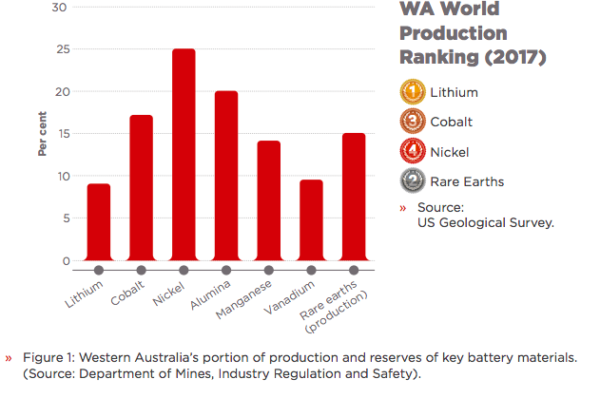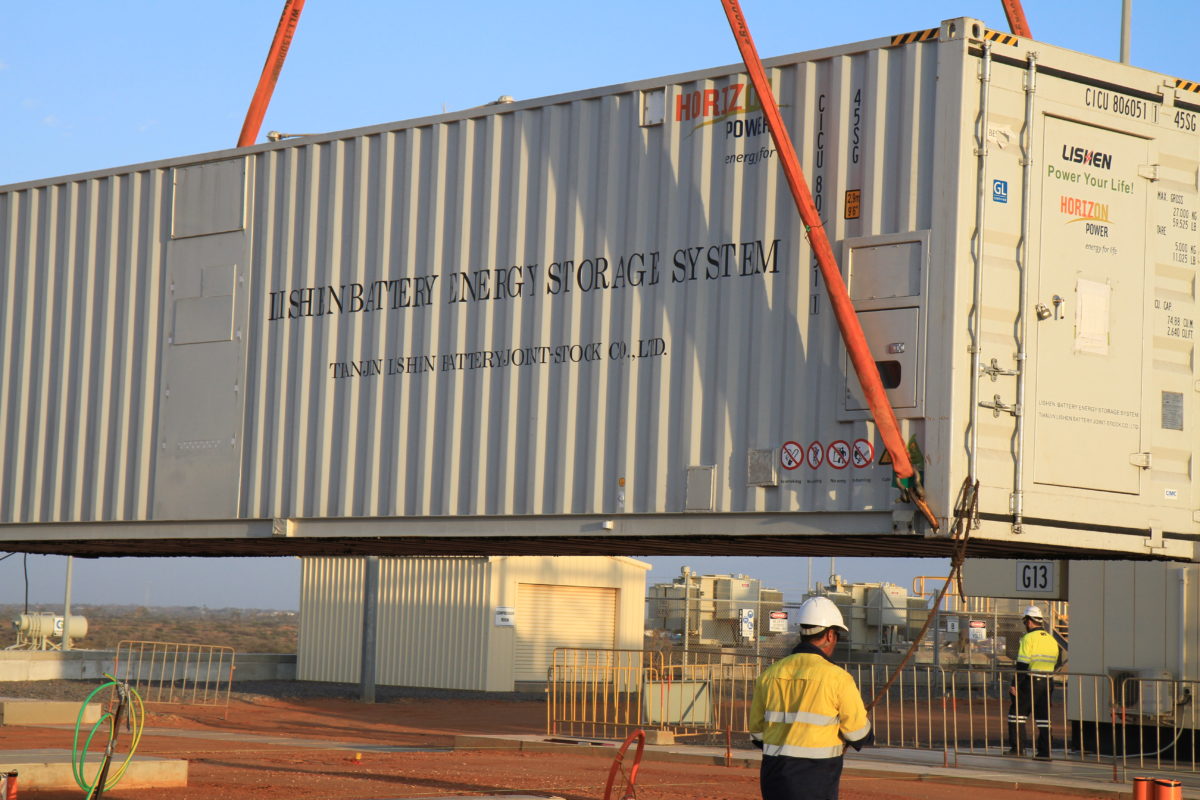Noting that Western Australia is well place to seize the battery manufacturing chance, the Future Battery Industry Strategy underlines that the window of opportunity is limited in time.
Launched last week by the McGowan government, the roadmap is expected to grow the state into a leading exporter of future battery minerals, materials, technologies and expertise.
“Our Future Battery Industry Strategy will drive the development of the Western Australian battery materials industry that will create local jobs, contribute to skills development and economic diversification, and maximise benefits to regional communities,” said Premier Mark McGowan
The move comes following calls for Australia to consider its downstream manufacturing capabilities, with the nation’s mineral reserves covering 90% of the elements required in li-ion battery chemistry.
That opportunity has already been recognized by the federal government, which has launched a strategy seeking investment to unlock the nation’s potential in lithium-ion battery manufacturing.
WA has put forward similar plans. One of the first initiatives the state government will implement is to develop and implement an investment attraction strategy with the aim to further strengthen relationships with investors and manufacturers in global battery and EV supply chains.
As part of the strategy, the government plans to continue to facilitate the establishment of new future battery projects in WA through the approvals process. After WA utility Horizon Power begun testing for the state’s first utility-scale battery in 2017, more big battery announcements followed including the last week’s green light for a massive solar+wind+storage project last week, and the Australian-first trial to integrate bulk battery storage into existing network launched last year.
The next steps for the government include filling current and future skill gaps, and facilitating access to infrastructure and funding for technology SMEs. Other measures include exploring initiatives to increase the uptake of batteries across the state and globally, such as opportunities through assembly, installation and management of energy storage systems.
On top of that, the McGowan government has also pledged to commit $6 million if successful in its bid to host the Future Battery Industries Cooperative Research Centre in Perth.
“The unprecedented growth of the future battery industry represents a once-in-a-lifetime opportunity for Western Australia,“ the premier said.
Deposits at hand
According to the state government, Western Australia is the world’s largest producer of lithium and a leading producer of other battery metals including nickel, cobalt and rare earths. Indeed, mid last year, data published by the United States Geological Survey showed that, in 2017, lithium production in Australia (most of which is focused in WA) reached 18,700 tons, overtaking Chile with 14,100.
“This is an exciting opportunity for Western Australia to be recognized as a world-leading producer and exporter of future battery materials, technologies and expertise, with huge potential for industry growth and job creation across the battery value chain,“ the premier said.

WA also boasts the world’s fourth largest vanadium and manganese resources, the second largest reserves of cobalt and the largest nickel resources, according to the Future Battery Industry web page.
The long-awaited Strategy is a big step forward for WA, which despite its high rooftop solar penetration, has a low share of renewable energy, and is the only state, alongside NSW, with no renewable energy target or net zero emissions target.
The 2018 scorecard released by the Climate Council showed WA at the bottom of the list in Australia’s renewables race.
This content is protected by copyright and may not be reused. If you want to cooperate with us and would like to reuse some of our content, please contact: editors@pv-magazine.com.









1 comment
By submitting this form you agree to pv magazine using your data for the purposes of publishing your comment.
Your personal data will only be disclosed or otherwise transmitted to third parties for the purposes of spam filtering or if this is necessary for technical maintenance of the website. Any other transfer to third parties will not take place unless this is justified on the basis of applicable data protection regulations or if pv magazine is legally obliged to do so.
You may revoke this consent at any time with effect for the future, in which case your personal data will be deleted immediately. Otherwise, your data will be deleted if pv magazine has processed your request or the purpose of data storage is fulfilled.
Further information on data privacy can be found in our Data Protection Policy.